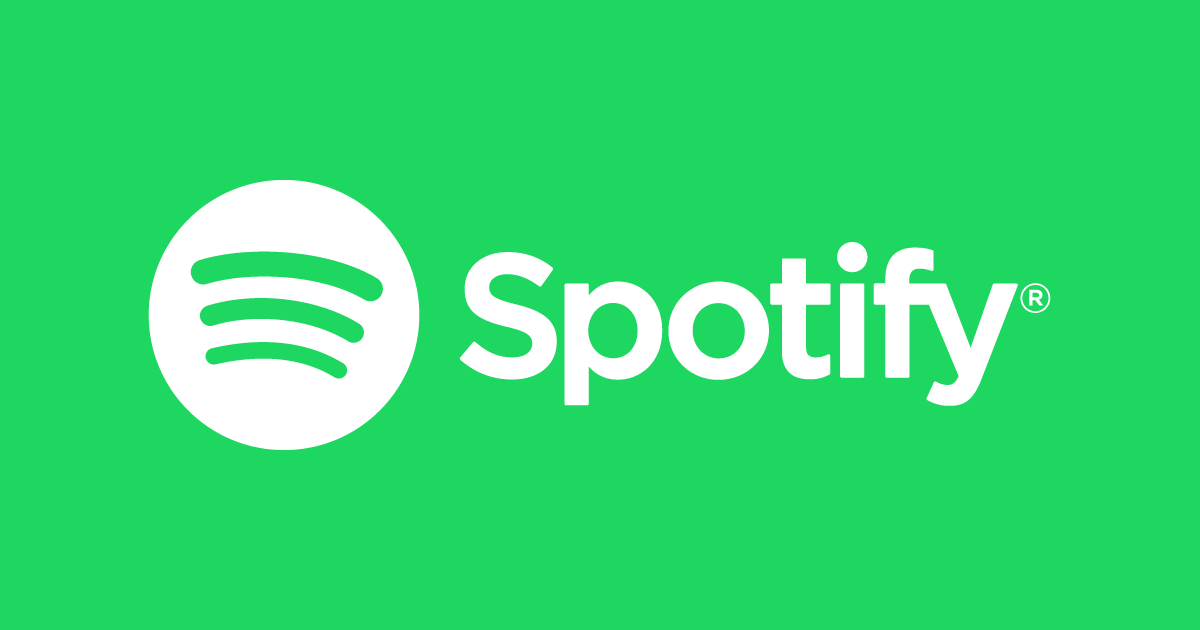Spotify Shares Surge 13% on Better-than-Expected Q2 Earnings and Gross Margin

Spotify (NYSE:SPOT) saw a notable increase of over 13% in its stock price during pre-market today after reporting better-than-anticipated earnings and gross margin for Q2/24.
The streaming giant posted an EPS of €1.33, surpassing the Street forecast of €1.05. However, revenue for the quarter was slightly below expectations, coming in at €3.81 billion compared to the estimated €3.82 billion. Premium revenue was recorded at €3.35 billion, marginally above the €3.34 billion estimate.
The company’s gross margin for the second quarter stood at 29.2%, exceeding the Street estimate of 28.1%.
Monthly active users (MAUs) were reported at 626 million, falling short of the projected 631.46 million. Similarly, ad-supported MAUs were 393 million, below the expected 397.71 million.
For the third quarter of 2024, Spotify forecasts revenue of €4 billion, which is significantly lower than the Street estimate of €4.365 billion.
| Symbol | Price | %chg |
|---|---|---|
| 035420.KS | 278500 | 4.13 |
| 035720.KS | 62700 | -2.39 |
| 0700.HK | 629 | 0.4 |
| 80700.HK | 575 | -0.26 |

Spotify (NYSE:SPOT) Sees Positive Analyst Sentiment and Price Target Increase
- Morgan Stanley sets a price target of $800 for Spotify (NYSE:SPOT), indicating a potential increase of 18.43%.
- Spotify holds an average brokerage recommendation (ABR) of 1.73, leaning towards a Strong Buy.
- The stock's current price is $675.53, with a year's fluctuation between $376 and $785.
Spotify (NYSE:SPOT) is a leading music streaming service that offers a vast library of songs, podcasts, and other audio content to users worldwide. The company competes with other streaming giants like Apple Music and Amazon Music. On October 21, 2025, Morgan Stanley set a price target of $800 for Spotify, suggesting a potential price increase of 18.43% from its current price of $675.53.
Wall Street analysts are optimistic about Spotify's future. The stock holds an average brokerage recommendation (ABR) of 1.73, indicating a favorable outlook. This rating leans towards a Strong Buy, with 21 out of 35 brokerage firms giving Spotify a Strong Buy recommendation. This confidence from analysts suggests a positive sentiment towards Spotify's growth potential.
Spotify's stock price is currently $675.53, reflecting a 0.60% increase or $4.01. The stock has fluctuated between $667.50 and $682.25 today. Over the past year, Spotify's stock has seen a high of $785 and a low of $376, showcasing its volatility. Despite this, the company's market capitalization is approximately $137.54 billion, indicating its significant presence in the market.
Today's trading volume for Spotify is 1,015,361 shares on the NYSE. This level of activity reflects investor interest and confidence in the stock. With a strong market position and positive analyst recommendations, Spotify continues to be a key player in the music streaming industry.

Spotify Falls 11% On Soft Guidance As Costs Offset Revenue Gains
Spotify (NYSE:SPOT) issued third-quarter guidance that missed expectations, citing negative currency impacts and rising payroll costs. Shares dropped over 11% in early U.S. trading Tuesday.
Despite previous cost-cutting measures, second-quarter operating expenses rose 8% from a year earlier. Share-based compensation totaled €115 million, exceeding internal forecasts by €98 million, due largely to increased stock prices and related tax burdens.
Revenue for the quarter increased 10% year-over-year to €4.19 billion, missing the Bloomberg consensus of €4.27 billion. Operating income was €406 million, falling short of projections of €490.3 million.
Spotify guided for Q3 operating income of €485 million on revenue of €4.2 billion—both below market estimates.
Still, the company projected monthly active users will reach 710 million in Q3, exceeding expectations. Management said they remain focused on expanding margins and driving growth into 2025.

Spotify (NYSE:SPOT) Maintains Strong Position in Music Streaming Industry
- Deutsche Bank reaffirms a "Buy" rating for Spotify (NYSE:SPOT), highlighting its market leadership and growth potential.
- Spotify's stock price demonstrates volatility with a year-high of $785 and a low of $300.57, reflecting dynamic market conditions.
- The company's significant market capitalization of approximately $140.8 billion and active trading volume indicate strong investor interest and confidence in its future growth.
Spotify (NYSE:SPOT) is a prominent player in the music streaming industry, known for its vast library and user-friendly platform. The company competes with other streaming giants like Apple Music and Amazon Music. On July 28, 2025, Deutsche Bank reaffirmed its "Buy" rating for Spotify, with the stock priced at around $701 at the time.
Spotify is recognized as a "market leader" in the streaming industry, with its business model and growth potential receiving praise. Landon Swan from LikeFolio highlights Spotify's continued expansion in market share, indicating strong performance and investor interest in the company's earnings. This recognition underscores the company's robust position in the market.
The current price of SPOT on the NYSE is $700.98, reflecting an increase of 1.14% or $7.88. Today, the stock has traded as low as $686.22 and as high as $709.65. This fluctuation in price demonstrates the dynamic nature of the stock market and investor sentiment towards Spotify.
Over the past year, SPOT has reached a high of $785 and a low of $300.57. This wide range indicates the volatility in the stock's performance, which can be attributed to various market factors and company developments. Despite this volatility, the company's market capitalization stands at approximately $140.8 billion, showcasing its significant presence in the industry.
The trading volume of 2,018,844 shares reflects active investor interest in Spotify. This level of trading activity suggests that investors are closely monitoring the company's performance and potential for future growth. As Spotify continues to expand its market share, it remains a key player in the streaming industry.

Spotify Technology (NYSE:SPOT) Sees Positive Analyst Update and User Growth
- Spotify Technology (NYSE:SPOT) has been upgraded to a "Buy" by Guggenheim, with a notable increase in user engagement and subscriber growth.
- The company's monthly active users (MAUs) reached 678 million in Q1 2025, marking a 10% year-over-year growth.
- Premium subscribers grew by 12%, totaling 268 million, thanks to innovative features like Spotify Wrapped and AI DJ.
Spotify Technology (NYSE:SPOT) is a leading player in the audio streaming industry, known for its vast library of music and podcasts. The company has been making strides in user engagement and subscriber growth, which has caught the attention of analysts. On June 6, 2025, Guggenheim updated its rating for SPOT to a "Buy," with the stock priced at approximately $715.49 at the time of the announcement.
Spotify's user engagement has seen a notable increase, with monthly active users (MAUs) reaching 678 million in the first quarter of 2025. This marks a 10% year-over-year growth, driven by Spotify's strategic expansion in emerging markets like Latin America. The company's localized strategies have played a crucial role in attracting new users and retaining existing ones.
In addition to growing its user base, Spotify has successfully converted free users to premium subscribers. The number of premium subscribers rose by 12%, totaling 268 million. This growth is largely due to innovative features like Spotify Wrapped and AI DJ, which enhance user experience and engagement. These features have helped Spotify maintain its competitive edge in the audio streaming market.
Despite the positive developments, SPOT's stock price has seen a slight decrease. The current price is $712.42, reflecting a decrease of 0.4, or approximately -0.06% in percentage terms. The stock has traded between $707.97 and $716.11 today, with a market capitalization of approximately $143.14 billion. The trading volume on the NYSE is 867,552 shares, indicating active investor interest.
Spotify's expanding user base and innovative features underscore its potential for global dominance in the audio streaming industry. As highlighted by Benzinga, the company's strategic moves and growing appeal worldwide make it a stock to watch. With Guggenheim's "Buy" rating, investors may find SPOT an attractive option in the current market landscape.

Spotify Technology's (NYSE:SPOT) Financial Performance and Market Position
- Spotify's Q1 2025 earnings per share were $1.13, missing analyst expectations.
- The company reported quarterly sales of $4.41 billion, surpassing forecasts and indicating a 15% year-over-year growth.
- Spotify anticipates Q2 2025 revenue of $4.52 billion and a user base growth to 689 million monthly average users.
Spotify Technology (NYSE:SPOT) is a leading music streaming service known for its vast library and personalized playlists. The company competes with other streaming giants like Apple Music and Amazon Music. On April 30, 2025, Evercore ISI maintained an "Outperform" rating for SPOT, even though the stock was in a "hold" position, priced at around $603.36.
Spotify's first-quarter 2025 financial results were mixed. The company reported earnings per share of $1.13, which was below the analyst consensus estimate of $2.33. However, Spotify's quarterly sales were strong, reaching $4.41 billion, surpassing the expected $4.20 billion. This represents a 15% increase compared to the previous year.
The platform's user base continues to grow, with an addition of 3 million monthly average users, bringing the total to 678 million. This aligns with Spotify's guidance. Looking ahead, the company anticipates second-quarter 2025 revenue of $4.52 billion, exceeding the analyst forecast of $4.39 billion. They also project total monthly average users to reach 689 million.
Following the earnings announcement, Spotify's shares dropped by 3.5%, closing at $576.94. Despite this, the stock has since rebounded, currently priced at $613.98, reflecting an increase of 6.42% or $37.04. The stock has fluctuated between a low of $565.02 and a high of $615.25 today.
Spotify's market capitalization is approximately $122.93 billion, with a trading volume of 4.22 million shares on the NYSE. Over the past year, SPOT has reached a high of $652.63 and a low of $280.66, indicating significant volatility in its stock price.

Spotify Technology's (NYSE:SPOT) Financial Performance and Market Position
- Spotify's Q1 2025 earnings per share were $1.13, missing analyst expectations.
- The company reported quarterly sales of $4.41 billion, surpassing forecasts and indicating a 15% year-over-year growth.
- Spotify anticipates Q2 2025 revenue of $4.52 billion and a user base growth to 689 million monthly average users.
Spotify Technology (NYSE:SPOT) is a leading music streaming service known for its vast library and personalized playlists. The company competes with other streaming giants like Apple Music and Amazon Music. On April 30, 2025, Evercore ISI maintained an "Outperform" rating for SPOT, even though the stock was in a "hold" position, priced at around $603.36.
Spotify's first-quarter 2025 financial results were mixed. The company reported earnings per share of $1.13, which was below the analyst consensus estimate of $2.33. However, Spotify's quarterly sales were strong, reaching $4.41 billion, surpassing the expected $4.20 billion. This represents a 15% increase compared to the previous year.
The platform's user base continues to grow, with an addition of 3 million monthly average users, bringing the total to 678 million. This aligns with Spotify's guidance. Looking ahead, the company anticipates second-quarter 2025 revenue of $4.52 billion, exceeding the analyst forecast of $4.39 billion. They also project total monthly average users to reach 689 million.
Following the earnings announcement, Spotify's shares dropped by 3.5%, closing at $576.94. Despite this, the stock has since rebounded, currently priced at $613.98, reflecting an increase of 6.42% or $37.04. The stock has fluctuated between a low of $565.02 and a high of $615.25 today.
Spotify's market capitalization is approximately $122.93 billion, with a trading volume of 4.22 million shares on the NYSE. Over the past year, SPOT has reached a high of $652.63 and a low of $280.66, indicating significant volatility in its stock price.

Spotify Technology S.A. (NYSE:SPOT) Price Target and Financial Performance Overview
- Mark Mahaney from Evercore ISI set a price target of $650 for Spotify, indicating a potential upside of 7.81%.
- Previous quarter earnings per share (1Q 2025) were $1.16, missing the consensus estimate of $2.37.
- Quarterly sales reached $4.53 billion, missing expectations but indicating a 15% year-on-year growth.
Spotify Technology S.A. (NYSE:SPOT) is a leading music streaming service that offers a vast library of songs, podcasts, and other audio content to users worldwide. Competing with platforms like Apple Music and Amazon Music, Spotify has carved out a significant market share with its user-friendly interface and personalized playlists. On April 30, 2025, Mark Mahaney from Evercore ISI set a price target of $650 for SPOT, suggesting a potential upside of 7.81% from its trading price of $602.93 at that time.
Despite the optimistic price target, Spotify's first-quarter 2025 financial results were mixed. The company reported earnings per share of $1.16, which fell short of the analyst consensus estimate of $2.37. This shortfall in earnings might have contributed to the cautious outlook from some analysts. However, Spotify's quarterly sales were a bright spot, reaching $4.53 billion below the expected $4.56 billion.
Spotify's user base continues to expand, with the platform adding 3 million monthly average users in the first quarter, bringing the total to 678 million. This growth aligns with the company's guidance and highlights its ongoing appeal to music and podcast listeners. Looking ahead, Spotify anticipates second-quarter 2025 revenue of $4.65 billion, which is below the analyst forecast of $4.74 billion. The company also projects its total monthly average users to reach 689 million, indicating continued user growth.
Following the earnings announcement, Spotify's shares experienced a 3.5% drop, closing at $576.94. However, the stock has since rebounded, with the current price at $604.15, reflecting an increase of 4.72% or $27.21. Today, SPOT has traded between a low of $565.02 and a high of $605.69. Over the past year, the stock has seen a high of $652.63 and a low of $280.66, indicating significant volatility. With a market capitalization of approximately $120.96 billion and a trading volume of 2,221,371 shares, Spotify remains a key player in the music streaming industry.







